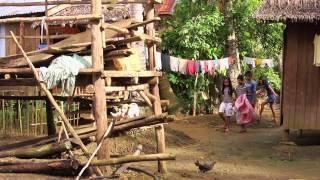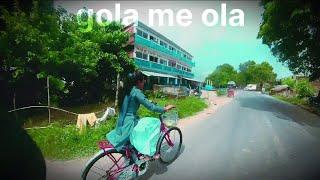
InteRed y AECID Cooperation and solidarity experience Bayanihan Philippines
InteRed and the Spanish Agency for International Cooperation for Development (AECID), working in the Philippines in an agreement that raises an ambitious rural development work that has lasted more than four years on comprehensive and sustainable development rural communities in Bicol and Caraga (two of the poorest regions of the Philippines who subsist on fishing and rice, corn and coconut).
One of the main problems of these communities, which are dedicated to 100% in agriculture and fishing, is the low level of household income due to limited productivity understood from the lack of knowledge to improve their crops and fishing as well as marketing products. There has been training women and men in farming techniques and sustainable fisheries that improve the quality of crops and fishery production, taking into account the ecological balance of natural resources. Agricultural products are marketed through agricultural associations have opened sales channels. To do this, leaders have been trained peasants in basic management concepts to enable them to sustain their activities.
Highlights four areas in which we have worked:
- Within the agriculture sector and to promote economic and business has been formed and trained in agricultural food production, livestock and fisheries development that has benefited men and women farmers and fishers who have improved their production practices (orchards, pig and poultry farms). They have also been advised and supported financially in the production, processing and marketing of products.
The cooperative work has paid special attention to women by strengthening the productive and social. Farming and fishing are stratified by gender in the allocation of tasks. While fishing is considered a male activity, sale and fish processing is the responsibility of women, which created difficulties in the season when there are no fish and crops. Women sought training to process agricultural products and fish and be able to sell out of the season.
- In education has contributed to improving the quality of education in teacher training, and educational conditions in primary, secondary and vocational training facilities (fitness classes, textbooks and educational materials) and development of plans local educational authorities to promote the right of access to education.
- Reduced risk of natural disasters by creating committees that are responsible for early warning in case of typhoons, earthquakes and floods, and will manage evacuations, respond to emergencies and conduct rescue operations (distribution food, shelter and equipment to enable housing rehabilitation)
- In health centers construction, equipping and commissioning of community pharmacies, has allowed rural communities' access to health services, as well as staff training and basic health care and nutrition has helped improve health status.
One of the main problems of these communities, which are dedicated to 100% in agriculture and fishing, is the low level of household income due to limited productivity understood from the lack of knowledge to improve their crops and fishing as well as marketing products. There has been training women and men in farming techniques and sustainable fisheries that improve the quality of crops and fishery production, taking into account the ecological balance of natural resources. Agricultural products are marketed through agricultural associations have opened sales channels. To do this, leaders have been trained peasants in basic management concepts to enable them to sustain their activities.
Highlights four areas in which we have worked:
- Within the agriculture sector and to promote economic and business has been formed and trained in agricultural food production, livestock and fisheries development that has benefited men and women farmers and fishers who have improved their production practices (orchards, pig and poultry farms). They have also been advised and supported financially in the production, processing and marketing of products.
The cooperative work has paid special attention to women by strengthening the productive and social. Farming and fishing are stratified by gender in the allocation of tasks. While fishing is considered a male activity, sale and fish processing is the responsibility of women, which created difficulties in the season when there are no fish and crops. Women sought training to process agricultural products and fish and be able to sell out of the season.
- In education has contributed to improving the quality of education in teacher training, and educational conditions in primary, secondary and vocational training facilities (fitness classes, textbooks and educational materials) and development of plans local educational authorities to promote the right of access to education.
- Reduced risk of natural disasters by creating committees that are responsible for early warning in case of typhoons, earthquakes and floods, and will manage evacuations, respond to emergencies and conduct rescue operations (distribution food, shelter and equipment to enable housing rehabilitation)
- In health centers construction, equipping and commissioning of community pharmacies, has allowed rural communities' access to health services, as well as staff training and basic health care and nutrition has helped improve health status.
Тэги:
#intered #filipinas #philippines #ongd #cooperacion #cooperation #aecidКомментарии:
한화 류현진이 가장무서워한 타자!
핫이슈TV
Три кота и Гоша и Карандашик
🎉ГОША И КАРАНДАШИК🎉
Честные люди
Игорь Теологов ТЕО БЛОГ
Прощание с начальной школой 2020
Гимназия 20 Донской
This is a Beneficial You Want to See in Your Garden: Assassin Bug || DHBG
Down-Home Backyard Gardening
acsr scrap
METALS SCRAP BUSINESS


























